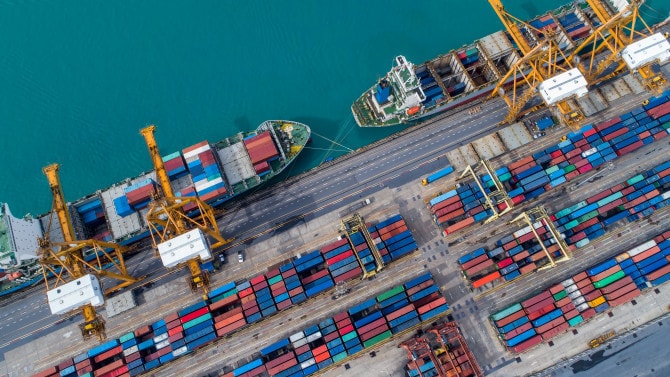UK Freeports - An opportunity for trade and investment
In the March 2021 Budget, The Government has confirmed its commitment to creating freeports in the UK, by announcing the locations of eight freeports across England. It was also signalled that at least one freeport will be created in Scotland, Wales and Northern Ireland.
Freeports will provide opportunities for businesses to access a range of benefits and operate under a reduced regulatory and administrative framework. Although freeports are not expected to be operational until late 2021, now is the time to consider whether being located in a freeport might be right for you.

What is a freeport?
The newly announced freeports are intended to be national hubs for global trade and investment across the UK. They form a central part of the Government's policy to level up communities through promoting regeneration, job creation and innovation.

Freeports operate within a country’s geographical borders but are effectively outside the country’s customs borders. Goods imported into a freeport are generally exempt from customs duties until they leave their secure customs zones. The English freeports model will offer customs and tax benefits, and reduced administrative burdens and planning regulations.
The freeport model asks Local Authorities, ports and investors to come together and develop a vision to regenerate a particular area. Freeports will have zones where tax and customs benefits apply and also zones where they will not.
Each of the 8 successful freeport bidders has proposed the outer boundary of their proposed freeport area. These locations will now move to the next stage of designation and remain subject to approval. During the summer of 2021 successful bidders will work with the Government to review and confirm the boundaries of their proposed tax and customs sites.
How will freeports work?
The model allows multiple sites to be designated within the overall freeport.
- Tax sites
- Customs sites
- Jointly authorised Tax and Customs sites
- Neither a Tax or Customs site
- Other benefits
Tax sites
The location of these sites will need to be approved and confirmed by the Government. Businesses in these tax sites will be able to benefit from a number of tax reliefs including:
- An enhanced 10% rate of Structures and Buildings Allowance for new investment over life of asset (compared to standard rate of 3%).
- An enhanced capital allowance of 100% for new investment for plant and machinery expenditure between 1 October 2021 and 30 September 2026.
- Full relief for Stamp Duty Land Tax for qualifying commercial property.
- Full Business Rates relief for 5 years.
- Potential relief from employer Social Security contributions for new employees up to £25,000 per employee for up to first three years of employment if they spend 60% or more of their time at tax site.
What should you consider now?
The freeports model will introduce a suite of tax, customs, and regulatory incentives across different locations within designated freeports. Businesses should consider freeports for the benefits they bring to wider tax, financial and commercial activities as there may be opportunities to further enhance and accelerate your business.
Key considerations include:
- Whether to enter or relocate into a freeport and the extent of the benefits?
- How will enhanced Capital Allowances work alongside the super-deduction?
- How are the freeport incentives accessed and which will I be eligible for?
- Where should I locate in a freeport?
- How do I enter a freeport and what do I need to do to interact with the freeport operator?
How can PwC help?
We will help you manage all of this complexity by bringing together tax, customs and consulting experts, to help you decide whether locating in a freeport is right for you.
We will help you understand exactly what you need to do to access available incentives, and answer the wider questions that arise from moving into a freeport zone.
We bring together specialists across all areas including:
- R&D and Capital Allowances,
- Tariffs and Customs,
- Stamp Duty Land Tax and Business Rates,
- Tax Compliance, Reporting and Strategy,
- Legal and Risk,
- Consulting and Economics.
Contact us


Energy, Utilities, Resources and Infrastructure Deals Leader, PwC United Kingdom
Tel: +44 (0)7866 727124








